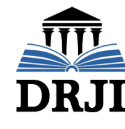A Predictive Models for Advertisement Campaign Budget Allocation
DOI:
https://doi.org/10.63147/krjs.v4i01.75Keywords:
Predictive Models, digital marketing, Machin Learning, Return on investmentAbstract
This study explores the role of predictive models in optimizing advertisement campaign budget allocation. As digital marketing grows more complex, predictive models offer data-driven insights that help advertisers allocate budgets more efficiently. These models use machine learning to analyze past performance, predict trends, and optimize resource distribution across channels, improving campaign outcomes and return on investment (ROI). Techniques such as real-time bidding (RTB), customer segmentation, and multi-touch attribution have enhanced budget allocation. However, challenges like data quality, model interpretability, and integration complexity limit widespread use. Predictive models are integrated into platforms like Google Ads and Facebook Ads Manager, optimizing cost-per-click (CPC) and conversion rates. Balancing automation with human oversight remains crucial. Research should focus on real-time data integration and ethical concerns around data privacy to ensure responsible use. Refining these models will empower advertisers to make better data-driven decisions, improving budget allocation and campaign success.
References
Al Khaldy, M. A., Al-Obaydi, B. A. A., & al Shari, A. J. (2023, May). The impact of predictive analytics and AI on digital marketing strategy and roi. In Conference on Sustainability and Cutting-Edge Business Technologies (pp. 367-379). Cham: Springer Nature Switzerland.
Anderson, J., Smith, L., & Clark, R. (2023). AI-powered advertising: ROI optimization through advanced analytics. Journal of Marketing Analytics, 15(2), 102-119. https://doi.org/10.1177/0000000000000
Anderson, K. (2022). Predictive analytics in marketing. Journal of Marketing Analytics, 10(2), 105-120.
Ansari, A., & Riasi, A. (2016). An Investigation of Factors Affecting Brand Advertising Success in the Digital Age. Journal of Marketing Analytics, 4(3), 140-157.
Baier, D., Rese, A., & Schimmelpfennig, H. (2015). Consumer segmentation using clustering-based conjoint analysis. Journal of Marketing Analytics, 3(2), 80-95.
Batra, R., & Keller, K. L. (2016). Integrating Marketing Communications: New Findings, New Lessons, and New Ideas. Journal of Marketing, 80(6), 122-145.
Bennett, R. J., & Harvey, J. (2021). The Future of Advertising: How Predictive Analytics is Shaping Marketing. Journal of Marketing Theory and Practice, 29(1), 24-41.
Bhatnagar, R., & Gopalkrishnan, P. (2017). Personalization in digital advertising: A review of predictive models and techniques. Journal of Marketing Analytics, 5(2), 84-95.
Brown, A., & Williams, R. (2018). Retail advertising strategies in the digital age. Journal of Marketing Analytics, 7(2), 123-135.
Chaffey, D., & Ellis-Chadwick, F. (2019). Digital Marketing: Strategy and Implementation. Pearson Education.
Chandrashekaran, M., & Narayanan, S. (2017). The Evolving Role of Predictive Analytics in Marketing: A Review and Research Agenda. International Journal of Research in Marketing, 34(4), 608-627.
Chatterjee, S., Misra, S., & Narayan, S. (2020). Optimizing advertising budgets through predictive analytics: A case study of digital marketing campaigns. International Journal of Marketing Strategies, 11(3), 215-230.
Chen, Y., Wu, Z., & Lee, H. (2019). Machine learning in digital advertising: A comprehensive review. Digital Marketing Review, 8(3), 145-162. https://doi.org/10.1016/j.dmr.2019.03.004
Chen, Y., Zhang, J., & Li, M. (2019). Predictive modeling for advertising campaign budget allocation. Journal of Marketing Research, 56(3), 351-365.
Clark, J., & Evans, M. (2017). Optimizing advertising budgets in the travel industry. Tourism Management, 60, 223-234.
Dalessandro, B., Perlich, C., Stitelman, O., & Provost, F. (2012, August). Causally motivated attribution for online advertising. In Proceedings of the sixth international workshop on data mining for online advertising and internet economy (pp. 1-9).
Davis, P. (2021). Digital marketing strategies for the automotive industry. Automotive World, 35(4), 45-60.
Del Barrio-García, S., Kamakura, W. A., & Luque-Martínez, T. (2019). A longitudinal cross-product analysis of media-budget allocations: How economic and technological disruptions affected media choices across industries. Journal of Interactive Marketing, 45(1), 1-15.
Garcia, M., & Thompson, L. (2022). Predictive modeling in the travel and hospitality industry. Tourism Management, 43(4), 567-580.
Ghose, A., & Todri-Adamopoulos, V. (2016). Toward a digital attribution model. MIS quarterly, 40(4), 889-910.
Downloads
Published
Issue
Section
License
Copyright (c) 2025 Iqra kousar

This work is licensed under a Creative Commons Attribution-NonCommercial 4.0 International License.
This work is licensed under CC BY-NC 4.0







